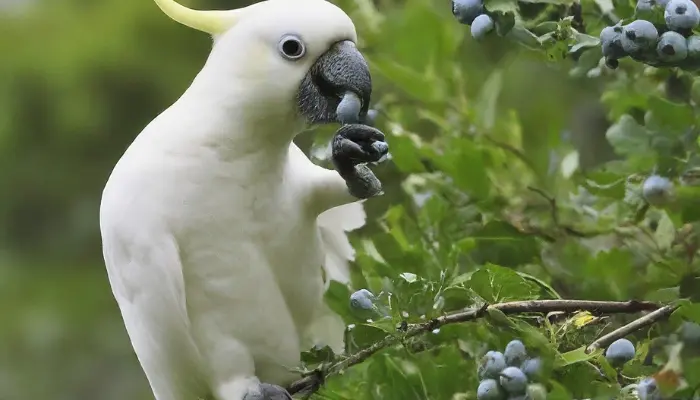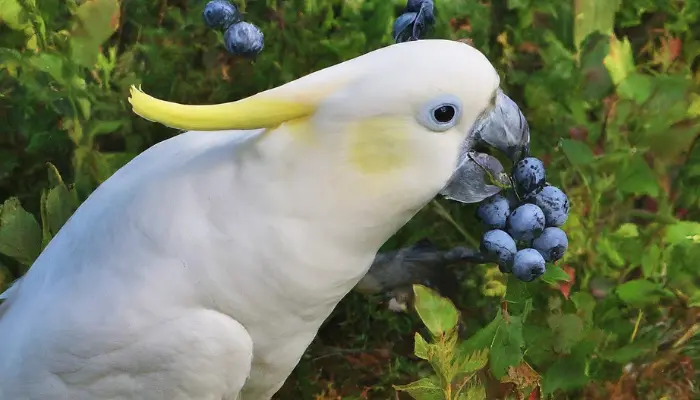Yes, cockatoos can eat blueberries in moderation. Blueberries are safe for most birds, including cockatoos, and they can be a healthy treat when given occasionally. However, it is important to wash the blueberries thoroughly to remove any pesticides or residues before offering them to your bird. Additionally, remember that treats should only make up a small portion of your bird’s diet, with the majority consisting of a balanced commercial pellet or seed mix supplemented with fresh fruits, vegetables, and occasional protein sources like cooked chicken or eggs.
Exploring the Nutritional Values of Blueberries
Blueberries are not just delicious; they are also packed with nutrients and health benefits. Here is a breakdown of their nutritional values.
- Vitamins: Blueberries are rich in several vitamins, particularly vitamin C and vitamin K. Vitamin C is essential for immune function and skin health, while vitamin K plays a role in blood clotting and bone health.
- Antioxidants: Blueberries are loaded with antioxidants, including flavonoids like anthocyanins, which give them their vibrant color. These antioxidants help protect your cells from damage caused by free radicals, potentially reducing the risk of chronic diseases like heart disease and cancer.
- Fiber: Blueberries are a good source of dietary fiber, which is important for digestive health and can help regulate blood sugar levels. Fiber also helps you feel full, which can aid in weight management.
- Low in Calories: Blueberries are relatively low in calories, making them a great option for adding flavor and nutrition to your diet without packing on extra calories.
- Minerals: Blueberries contain small amounts of several essential minerals, including manganese, which plays a role in metabolism and bone health, and potassium, which is important for heart health and muscle function.
- Low in Fat: Blueberries are naturally low in fat, making them a healthy choice for those watching their fat intake.
Incorporating blueberries into your diet can be as simple as adding them to smoothies, yogurt, salads, or oatmeal, or enjoying them as a standalone snack. Their nutritional profile makes them a great addition to a balanced diet, supporting overall health and well-being.


